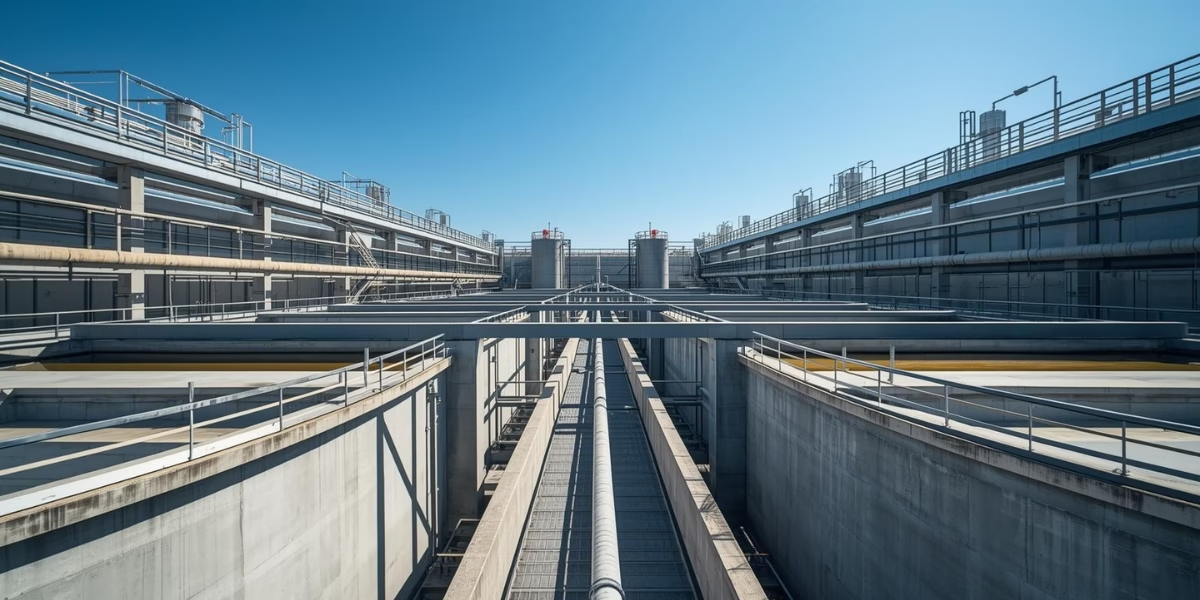Discover how Filament Winding Resin delivers unmatched strength, corrosion resistance, and longevity for modern water and wastewater pipeline systems. Learn why it’s the true backbone of reliable infrastructure.
As cities expand and industries grow, the demand for efficient water and wastewater management rises. Traditional metal pipelines struggle to keep up with corrosion, leaks, and high maintenance costs. The modern solution? Filament Winding Resin technology becomes the unsung hero behind durable, lightweight, and long-lasting composite pipelines.
Used in fiberglass-reinforced plastic (FRP) systems, Filament Winding Resin provides the strength and resilience that today’s water infrastructure demands. It’s not just a coating; it’s the foundation that ensures pipelines perform flawlessly for decades.
How Filament Winding Resin Technology Strengthens Pipeline Systems?
Pipeline systems face extreme stress from internal pressure, soil load, and aggressive chemicals. Filament Winding Resin plays a key role in ensuring these systems stay intact, leak-free, and efficient over time.
Let’s explore how this advanced material has become the backbone of water and wastewater pipelines worldwide.
Filament Winding Resin Technology Offers Great Chemical Resistance
Water and wastewater pipelines often carry corrosive substances, from chlorinated water to industrial effluents. Metal pipes quickly rust and degrade, but Filament Winding Resin provides excellent chemical resistance.
Its molecular structure prevents moisture and chemical intrusion, keeping the inner walls smooth and free from buildup. This resistance ensures long service life, even in harsh underground or marine environments.
High Strength-to-Weight Ratio
Pipelines must handle significant pressure, yet they also need to be easy to transport and install. Filament Winding Resin composites achieve this balance perfectly.
The resin-fiber combination gives FRP pipes exceptional tensile and flexural strength while keeping weight low. This makes installation faster, safer, and more cost-effective compared to steel or concrete alternatives.
Leak-Proof and Maintenance-Free
A key advantage of Filament Winding Resin pipelines is their seamless structure. The filament winding process creates a uniform wall thickness, eliminating weak points or joints where leaks typically occur.
As a result, maintenance requirements drop dramatically. Once installed, these pipes can operate reliably for decades without the frequent repairs common in traditional systems.
Excellent Thermal and Pressure Performance
Water and wastewater systems experience temperature variations and pressure fluctuations. Filament Winding Resin handles both with ease.
Its cross-linked polymer network provides thermal stability and prevents deformation under high pressure. Whether transporting hot industrial wastewater or cold freshwater, the pipeline maintains its structural integrity.
Long Service Life and Low Lifecycle Cost
Although FRP pipelines may have a slightly higher upfront cost, Filament Winding Resin ensures long-term savings. Its durability means fewer replacements, less downtime, and lower maintenance expenses.
Studies show that FRP pipelines can last over 50 years with minimal degradation, a clear advantage over conventional materials.
Applications in Water and Wastewater Infrastructure
The versatility of Filament Winding Resin makes it ideal for a wide range of pipeline applications, including:
- Water transmission pipelines: For municipal and industrial water supply.
- Sewage and wastewater lines: Resistant to corrosive gases and chemicals.
- Desalination plants: Handles saline and high-pressure environments.
- Industrial drainage systems: Performs well in chemical-rich conditions.
- Storage tanks and pressure vessels: Offers lightweight yet strong containment solutions.
Each application benefits from the resin’s unbeatable combination of performance and reliability.
Environmental and Economic Benefits
In addition to durability, Filament Winding Resin supports sustainability. FRP pipes consume less energy during production and transportation due to their lightweight nature.
They also reduce the carbon footprint over their lifetime by minimizing repairs and replacements. Moreover, advancements in low-emission and recyclable resin systems are making these pipelines even more environmentally friendly.
From both an ecological and economic perspective, Filament Winding Resin pipelines offer unmatched long-term value.
Future of Filament Winding Resin Technology
The evolution of Filament Winding Resin continues. Researchers are now developing nano-enhanced and hybrid resin systems that offer even greater toughness and chemical stability.
Automation and digital controls in the winding process are also improving manufacturing precision, ensuring consistent quality for large-scale infrastructure projects.
As global demand for sustainable and long-lasting pipeline systems grows, Filament Winding Resin will remain at the core of innovation in composite engineering.
Concluding Thoughts
Modern water and wastewater systems demand more than basic durability; they require long-term performance, safety, and sustainability. Filament Winding Resin delivers all three.
Its superior corrosion resistance, mechanical strength, and longevity make it the true backbone of modern pipeline systems. From clean water supply to wastewater management, this advanced resin ensures smooth flow, minimal maintenance, and unmatched reliability, built to last for generations.
COMPANY INFO
Website: www.crestresins.com
Phone: +91 9879233188
Email: enquiry@crestresins.com
Address: 605/A, 6th Floor, Tower D, Times Square Grand Office, Sindhubhavan Marg, Near Taj Hotel, Ahmedabad, Gujarat - 380059


